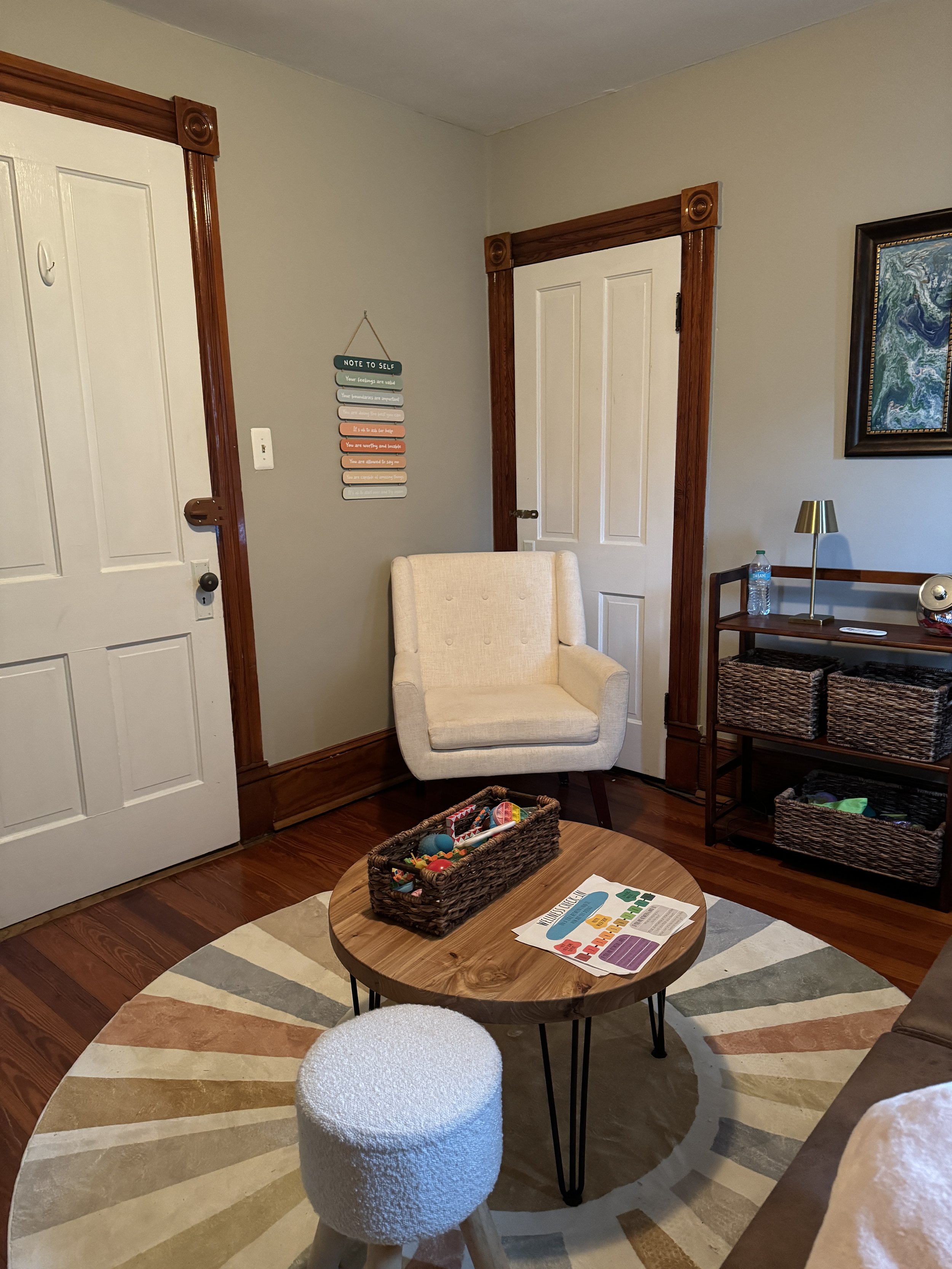
Tween Therapy
(ages 10-12)
Building Confidence in Our Kids (Including Tweens Ages 10–12)
Many children and tweens (ages 10–12) face emotional, behavioral, or social challenges that affect how they feel, act, or learn. Child and tween therapy is a powerful way to help them build confidence, manage emotions, and develop healthier ways of coping.
At Thrive Counseling for Healing and Connection, our therapists support children and tweens through life stressors like family conflict, bullying, school struggles, grief, and health challenges. We help them work through difficult emotions such as anxiety, sadness, anger, stress, low self-esteem, and social anxiety.
Our team is trained to treat a wide range of concerns, including:
ADHD and behavioral issues
Anxiety and depression in children
Disruptive behavior disorders
Self-injury and trauma-related symptoms
In addition to supporting your child or tween, we work closely with caregivers by offering parent coaching and training, giving you tools and strategies to reinforce progress at home.
Some of the Evidence-Based Practices We Use With Tweens
-
Play therapy allows children to express thoughts and emotions through play when they may not have the words. At Thrive Counseling, our therapists use play-based techniques to help children process emotions, develop coping skills, and build confidence in a safe and supportive environment.
-
Cognitive Behavioral Therapy is a solution-focused, goal-oriented approach to changing unhealthy thinking and behavioral patterns.
-
Mindfulness, Neuroscientific, and Somatic Experiencing therapy interventions
-
Dialectical Behavioral Therapy has been found to treat a wide variety of problems and provides clients with coping skills to better solve daily struggles. The main focus is to educate clients about their emotions and how to regulate them.
-
Evidence Based Practices for Young Adults
-
Cognitive Behavioral Therapy (CBT)
CBT helps you understand how your thoughts, feelings, and behaviors are connected. We use this approach to help you identify unhelpful thinking patterns and build healthier ways of coping and responding to life’s challenges. -
Dialectical Behavior Therapy (DBT)
DBT offers skills for managing intense emotions, building stronger relationships, and staying grounded during stressful moments. At Thrive, we integrate DBT tools to help you find balance between acceptance and change. -
Acceptance and Commitment Therapy (ACT)
ACT helps you stop fighting your thoughts and feelings and start focusing on what really matters to you. We use ACT to support clients in accepting life’s difficulties while taking meaningful steps aligned with their values. -
Eye Movement Desensitization and Reprocessing (EMDR)
EMDR is a powerful method for processing trauma and reducing the emotional intensity of past experiences. Our trained therapists use EMDR to help you feel more in control and less triggered by difficult memories. -
We incorporate mindfulness, somatic, and brain-based interventions to support holistic healing from the inside out. Mindfulness helps you stay present and approach your thoughts and emotions with greater awareness and compassion. Somatic therapy focuses on how the body holds stress and trauma, using movement, breath, and sensation to restore a sense of calm and safety. Brain-based techniques draw on neuroscience to regulate your nervous system, improve emotional resilience, and create lasting change through strategies that align with how your brain and body naturally heal.
-
At Thrive Counseling for Healing and Connection, our work is rooted in attachment-based theory, which recognizes that our early relationships shape how we connect with others—and ourselves—throughout life. When those connections are safe and supportive, we thrive. But when they’re disrupted or painful, it can lead to patterns of anxiety, disconnection, or self-doubt. Our therapists help you explore those patterns with compassion, build emotional safety, and form healthier, more secure relationships—starting with the one you have with yourself.




